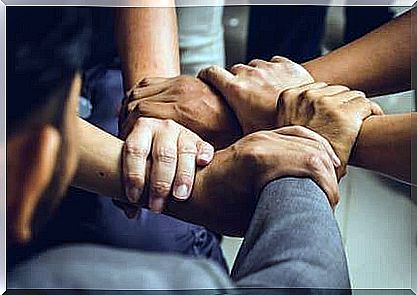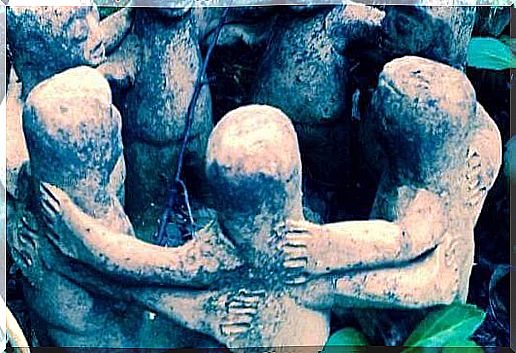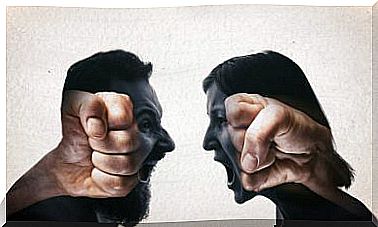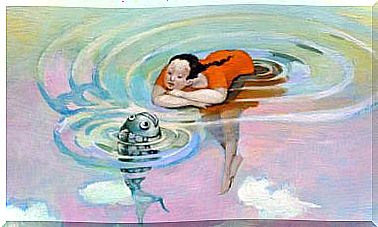Men’s Circles: Benefits Of An Increasingly Common Practice

Men’s circles make up a practice recovered from antiquity with great psychological benefits. In the past, it was common to gather around a campfire to share stories, solve problems, find advice, learn, vent fears, etc. Today, many men find in these dynamics a safe space to listen and be heard for the first time.
It is very possible that some people find it strange and even unusual that a group of complete strangers meet in a room or in a corner of the forest to find support, to voice intimacies, frustrations and doubts. It is even more so for the male gender, little given (on average) to share deeper and, above all, emotional aspects with other men.
We live in a society where masculinity, in capital letters, has served a very rigid hegemonic model for decades. The construction of the masculine identity was almost like a mold to which everyone had to adjust closely and without question. In that inflexible scheme there was no room for doubts, for emotions and, even less, for vulnerabilities.
Michael Kimmel, founder and director of the ‘Center for the Study of Man and Masculinities’ at Stony Brook University in New York, tells us that, fortunately, all of this is changing . Now we can talk about more than one type of masculinity, the range is expanded to include any type of identity, expression and need.
One way to go deeper into this and other aspects is through men’s circles.

Men’s circles, what are they and what are they for?
Each year the National Institute of Statistics (INE) offers us data on suicide that should invite us to reflect. One of them is the following: the number of suicides of men triples that of women. In Spain, for example, 75% of people who decided to commit suicide were men. The same happens in other countries, showing us that when it comes to gender, it seems that they are the ones who opt for the most dramatic exit of all.
Now, from the World Health Organization (WHO) and in its report on suicide prevention, they point out that there is no explanation of why this happens. We do not know what the causes are, but we are clear that we lack resources. Thus, experts on the subject such as Dr. Brené Brown, a research professor at the University of Houston, indicates that men, in general, tend to feel a high pressure on what is expected of them.
Being a man has always been synonymous with power, resolution, dominance, self-control and success. Realities such as unemployment, lack of prospects, identity problems, inability to manage failures, etc., often create unfathomable gaps. In most cases, the gender roles to which they are usually exposed leaves them isolated. It subordinates them to a reality where there is no emotional honesty, where vulnerability turns into anger and, hence, into mental health problems.

Men’s circles, connecting spaces
The circles of men stand today as an ideal resource to transform and sanitize the concept of masculinity. In these spaces meet groups of men who do not know each other, of different ages and social origins. Thus, if there is something that most of us know, it is that, sometimes, speaking with a complete stranger allows us to communicate and put things out loud that we would not share with family and even friends.
In a society so used to judging or pointing out certain behaviors and words, men very often feel this weight. A burden that, in addition, is given in most cases through education, where they are encouraged to be strong, to hide feelings. In men’s circles, therefore, a safe space is created in which to open up, open up, and find validation and support from other men.
Purpose of these meetings and dynamics
The purpose of men’s circles is as positive as it is challenging . The goal is to empower men to feel emotionally mature, powerful and compassionate to heal their own wounds and help others. It is a firm commitment to your own personal development.
The dynamics and benefits that each of them will find in these circles are the following:
- To be listened to by other men with respect and closeness, without any judgment being made.
Learn to express and communicate emotions, feelings, fears and painful experiences. - Work on your own identity, whatever it may be.
- Learn to ask for help and advice.
- Form a supportive brotherhood.
- Learn to listen compassionately.
- Allow yourself to be vulnerable.
- Being able to develop greater self-confidence.
- Clarify vital purposes.
- Develop a firm commitment to yourself and to others. Be responsible, respectful and upright with your own emotions and needs.
- Work and update aspects related to masculinity.

Where are the men’s circles found?
Dating circles between men are growing in popularity. They are increasingly abundant in the United Kingdom, Australia, Spain, the Nordic countries, etc. Now, it is interesting to know that the United States has always had a great tradition. The non-profit organization MandKind Project, for example, has been working in the support and personal development of men for more than 30 years and, today, has subsidiaries practically all over the world.
In this way, anyone who wishes to make contact with these dynamics has only to look for and approach one of these centers specialized in these dynamics. Sometimes a small decision creates a big change when we need it most.









